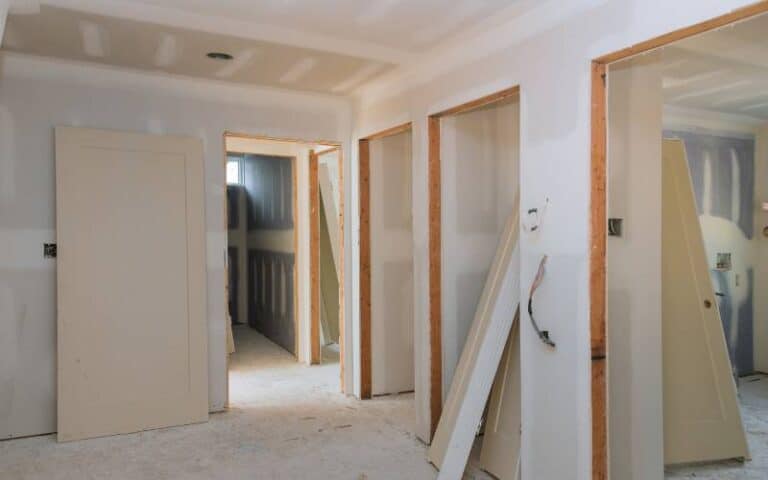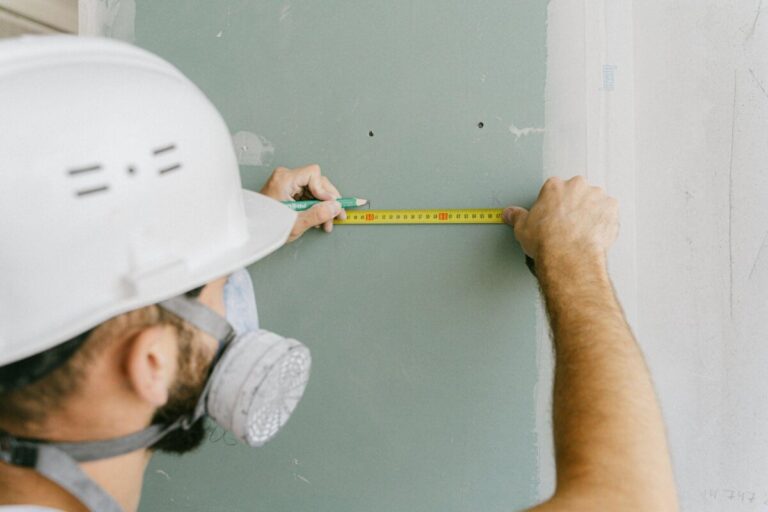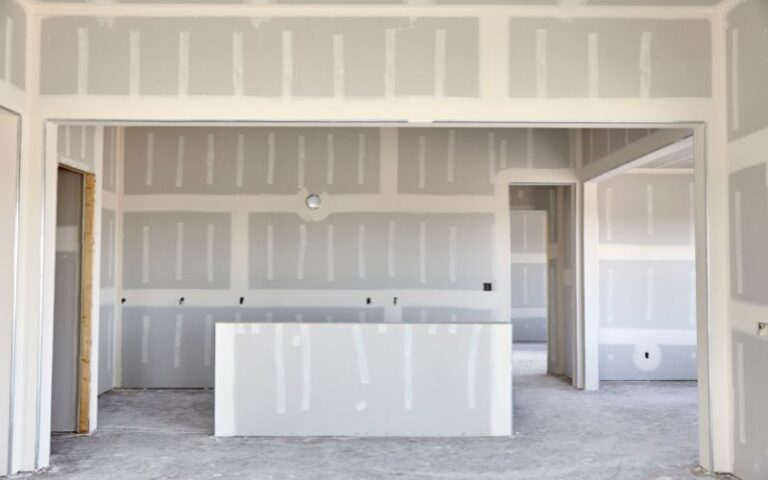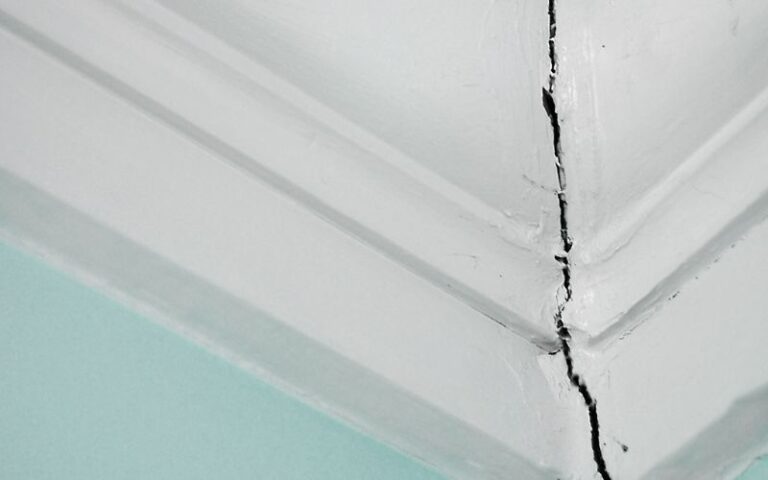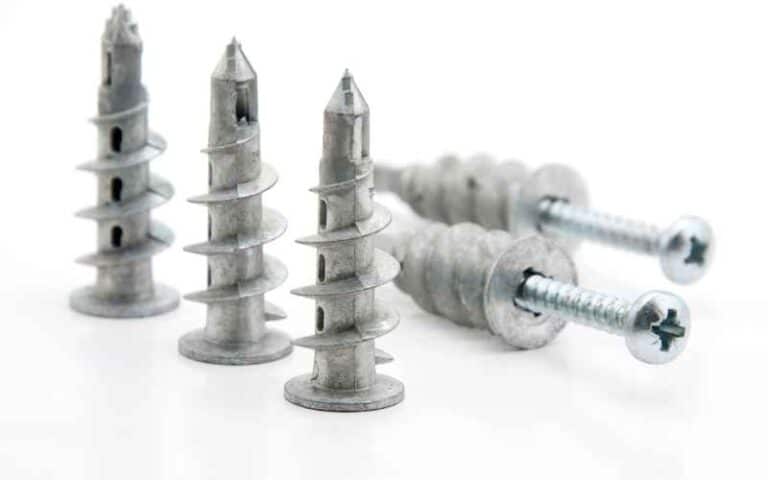Drywall screws are screw constructors that attach drywall to either metal studs or wooden studs.
Screws differ in length and thickness, but the most crucial factor you should consider in drywall applications is the type of thread the screw has.
You can use fine thread drywall screws for woodworking, but it isn’t advisable. That is because fine thread screws are meant for metalworking and will not work well in woodwork.
Fine thread screws might not have a lot of differences when compared to coarse thread screws, but they each have their particular uses.
In this article, I will explain the various uses and similarities between fine-thread screws and coarse-thread screws.
Ready for a Drywall Quiz?
What are Fine Thread Drywall Screws Used For?
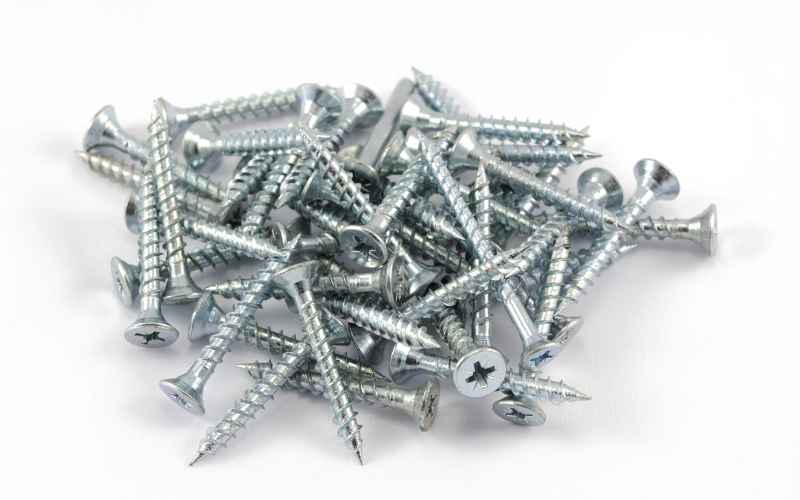
You can use Fine thread drywall screws to fasten metal studs to drywall during installation.
Some of the most common lengths of drywall screws are 1″, 1⅝”, and 2″ (inch) screws suitable for drywall of various thicknesses.
Before installing drywall, there are things you should know. You should know your:
- Drywall Thickness
- Drywall Composition
- Type of Studs
You should seriously consider the thickness of your drywall before choosing a drywall screw.
Drywalls that are thick will work well with coarse thread drywall screws, while fine thread screws will be suitable on thin drywall.
The composition and type of studs are some of the most critical factors you should consider before choosing drywall screws.
There are two main screws used for drywall installation, which differ based on threading. They are fine and coarse-thread drywall screws.
#1. Fine Thread Drywall Screws
You can use fine thread screws to install drywall when attaching metal studs and other metallic surfaces.
Fine thread screws have small spaced groves that can drill through surfaces like metal studs; this creates groves in the form of threads that holds the screw inside the metal.
You should use them on drywall with metal studs, but you can also use them on hardwood that is difficult to drill with coarse-thread screws.
#2. Coarse Thread Drywall Screws
Coarse thread screws are drywall screws used to fasten drywall to wooden studs. You can identify them due to their dark carbon steel-looking color and wider thread gaps.
Sadly you can not always identify coarse thread screws by their color because some screws are not dark but shiny.
Coarse thread screws have a large and robust thread that screws deep into multiple layers of the wood and is suitable for softwood and materials that are not tightly packed.
Is it Okay to Use Fine Drywall Screws For Wood?
It is not advisable to use fine drywall screws for woodworking, especially softwoods and composite wood.
Wood has multiple layers that require proper drilling with large threaded screws to get enough holding power.
Fine drywall screws have tiny threads and are more suitable for drilling into metals and hard surfaces. However, choosing coarse threaded screws for all your woodworking would be best.
You can use fine thread screws to drill wood, but you will encounter some problems.
Here are the advantages and disadvantages of using fine thread screws for woodworking.
#1. Advantages of Fine Thread Screws on Wood
- Fine Thread Screws have a high tensile strength that prevents the screw from snapping when screwing hardwood.
- You can use fine Thread Screws for delicate work because they don’t damage light fibers.
- Fine Thread Screws are malleable to some extent and will bend instead of breaking under excessive force.
- They can be used interchangeably for metalworking and woodworking in some situations.
#2. Disadvantages of Fine Thread Screws on Wood
- Fine Thread Screws have smaller threads and reduced gripping power in wood and furniture.
- Fine Thread Screws are not as tough as coarse thread screws and can get worn quickly.
- They are not suitable for softwood and particle board wood applications.
- Bent screws are difficult to remove and might divert and pierce the wrong area while screwing.
Can You Use Fine Thread Drywall Screws For Plywood?
You should not use fine thread drywall screws for softwood like plywood, mainly because fine thread screws will be unable to drill and hold the plywood.
You can use fine thread screws on the following materials:
- hardwood
- drywall
- thick gauge metal fastening
While materials suitable for coarse-thread screws are
- plywood
- composite wood
- softwoods
- SPF
Here are some reasons why fine and coarse thread screws excel in specific types of woods and materials.
#1. Hardwood
Hardwood is wood from broad-leaved deciduous trees that grow primarily in temperate regions.
Trees like oak, mahogany, and maple trees are all examples of hardwood. Unfortunately, hardwood trees are dense and difficult to cut and drill through.
Coarse Thread Screws are brittle and might break if you try to use them on hardwood; You should use fine thread screws instead.
#2. Drywall
You can fasten drywall with either fine thread screws or coarse thread screws but how well they will perform depends on the type of studs and surface you are using.
Metal studs and surfaces work well with fine thread screws because of their self-threading ability, while wooden studs require coarse thread screws to work effectively.
#3. Softwood
Softwoods are the opposite of hardwoods. They are primarily needle-leaved trees that remain green all year round.
Trees like apples, pine, spruce, and cedar are examples of softwoods. Softwood is very easy to machine and works on.
Softwood fibers are soft and cannot hold fine thread screws well; you will need coarse thread screws that have large threads if you want the screws to hold correctly.
#4. Composite Wood
Composite wood is wood-based boards derived from compressing, gluing, and heating sawdust to create wooden boards.
Fine Thread Screws have tiny threads and cannot hold composite wood properly. It requires screws with large threads that can sink into the particle board and stay firm.
Can You Use Coarse Thread Drywall Screws For Wood?
Yes, you can use coarse thread drywall screws for wood, but it would help if you avoided using them on hardwood and metal surfaces.
Wood is soft, and using a coarse threaded screw is best while working on wood-based materials.
Here are some of the characteristics of Fine Thread Screws and Coarse Thread Screws, showing their differences and their best area of application.
| Fine Thread drywall screws | Coarse Thread drywall screw |
|---|---|
| Higher tensile strength | Higher gripping power |
| Suitable for metal jobs and hardwood | Suitable for softwood and particle board |
| Works best on hardwood | Works best on softwood |
| Bends under force, reasonably accurate | Snaps under excess force, very accurate |
As mentioned before, You can use fine and coarse thread drywall screws interchangeably, but you can only do so in a few cases.
Coarse Thread screws resist wearing a lot compared to fine thread screws, but they are brittle and can snap if you screw them with too much force.
You must study the type of drywall and studs you use and choose the appropriate screw for fastening to drywall.

